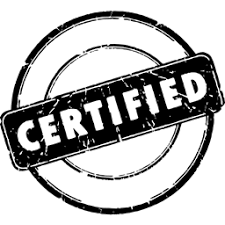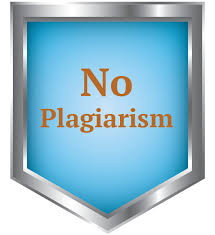 The formulation and execution of a project methodology stand as a pivotal juncture where precision and clarity are of paramount importance. Writing a meticulously structured research methodology can often be a daunting task, laden with intricacies and nuances that demand unwavering attention. Recognizing the significance of this critical phase, we have emerged as steadfast companions to guide you through the labyrinthine process of refining your research methodology. Our mission is simple yet profound, we offer expert help to edit a research project chapter three. With a deep-rooted commitment to academic excellence, we understand the challenges that scholars, students, and researchers encounter when crafting a methodology that adheres to the highest standards of rigor and coherence. Whether you are embarking on an undergraduate B.Sc. project or navigating the intricacies of more advanced academic endeavors, our team of seasoned editors is here to ensure that your methodology not only meets but surpasses the expectations of academic scrutiny. Our approach is founded on the principles of precision, clarity, and the pursuit of academic excellence. Our expert research chapter III editors possess a wealth of experience in various academic disciplines, and they are well-versed in the intricacies of research methodology across diverse fields. We meticulously review and refine every facet of your research methodology, from the formulation of research questions to the selection of appropriate data collection methods and the articulation of your rationale. We are not merely editors, we are dedicated partners on your academic journey, committed to enhancing the quality and effectiveness of your research methodology. Our collaborative approach empowers you to present a methodology that not only stands as a testament to your scholarly rigor but also paves the way for the successful execution of your research project. With us by your side, you can embark on your academic odyssey with confidence, knowing that your research methodology is a beacon of excellence in the academic landscape.
The formulation and execution of a project methodology stand as a pivotal juncture where precision and clarity are of paramount importance. Writing a meticulously structured research methodology can often be a daunting task, laden with intricacies and nuances that demand unwavering attention. Recognizing the significance of this critical phase, we have emerged as steadfast companions to guide you through the labyrinthine process of refining your research methodology. Our mission is simple yet profound, we offer expert help to edit a research project chapter three. With a deep-rooted commitment to academic excellence, we understand the challenges that scholars, students, and researchers encounter when crafting a methodology that adheres to the highest standards of rigor and coherence. Whether you are embarking on an undergraduate B.Sc. project or navigating the intricacies of more advanced academic endeavors, our team of seasoned editors is here to ensure that your methodology not only meets but surpasses the expectations of academic scrutiny. Our approach is founded on the principles of precision, clarity, and the pursuit of academic excellence. Our expert research chapter III editors possess a wealth of experience in various academic disciplines, and they are well-versed in the intricacies of research methodology across diverse fields. We meticulously review and refine every facet of your research methodology, from the formulation of research questions to the selection of appropriate data collection methods and the articulation of your rationale. We are not merely editors, we are dedicated partners on your academic journey, committed to enhancing the quality and effectiveness of your research methodology. Our collaborative approach empowers you to present a methodology that not only stands as a testament to your scholarly rigor but also paves the way for the successful execution of your research project. With us by your side, you can embark on your academic odyssey with confidence, knowing that your research methodology is a beacon of excellence in the academic landscape.
What Are the Four Types of Research Methodology That Require Editing?
Research methodology refers to the systematic processes and techniques employed by researchers to gather and analyze data to address research questions or objectives. While there are various research methodologies, it's important to note that editing is a crucial step in all of them to ensure clarity, coherence, and accuracy of the research findings. The four primary types of research methodology that require editing are:
- Quantitative Research: In quantitative studies, researchers collect numerical data to analyze statistically. Editing is vital to ensure that the data is accurately recorded, organized, and analyzed. Additionally, the methodology section and statistical analysis should be reviewed to ensure the appropriate methods and tests are used.
- Qualitative Research: Qualitative research involves collecting non-numerical data such as interviews, observations, or content analysis. Editing in this context focuses on transcribing and coding qualitative data accurately. Ensuring that quotes and examples are well-contextualized and support the research findings is also crucial.
- Mixed-Methods Research: When researchers combine both quantitative and qualitative methods, editing becomes essential to maintain consistency between the two data types and ensure they complement each other effectively. It's important to edit the research design and data integration strategies.
- Action Research: Action research involves researchers actively participating in a real-world situation to address a specific problem. Editing in action research involves refining the action plan, documenting the process, and analyzing the outcomes. Clarity and precision are critical to convey the actions taken and their impact accurately.
Features of a BSc Project Methodology That’s Edited by Expert Editors
Editing a BSc project by our B.Sc. research project methodology editors enhances its overall quality and clarity. Here are five major features of a well-edited methodology:
- Clarity and Precision: Our editors ensure that the methodology section is clear and concise. They help in refining the language, eliminating jargon, and ensuring that the research methods are described with precision, making it easy for readers to understand the approach taken.
- Consistency: We ensure that there is consistency in the use of terminology, formatting, and referencing styles throughout the methodology section. This consistency enhances the professionalism and readability of the document.
- Compliance with Guidelines: Our experts are well-versed in the guidelines and standards of academic writing. They ensure that the methodology section complies with the specific requirements and guidelines set by the institution or journal where the project is submitted.
- Clarity of Objectives and Rationale: We can help in making the objectives and rationale of the research crystal clear. We ensure that the methodology aligns with the research questions or hypotheses, strengthening the overall logical flow of the project.
- Correctness and Validity: Our editors meticulously check the methodology for any errors or inconsistencies. They also assess the validity of the chosen research methods, helping to enhance the rigor and reliability of the study.
What Are the Editing Requirements for Methodologies in B.Sc. Projects?
 The editing requirements for methodologies are crucial to ensure the clarity, validity, and reproducibility of the research conducted. The methodology section should be organized in a logical sequence, starting with a concise introduction that outlines the research objectives and hypotheses. It should then provide a detailed description of the research design, including the choice of research methods, data collection techniques, and any instruments or tools used. The clarity in language and terminology is paramount, as the methodology should be comprehensible to both experts and non-experts in the field. Additionally, it should explicitly address potential sources of bias and limitations of the chosen methods. Ethical considerations and steps taken to obtain necessary approvals, such as Institutional Review Board (IRB) approval for human subjects research, should also be clearly stated. More so, the methodology should be written in the past tense, as it describes what was done in the study, and it should align with the research questions or hypotheses posed in the introduction, maintaining a logical flow throughout the section. Regular peer review and feedback from advisors or mentors are essential for refining the methodology section to meet these editing requirements.
The editing requirements for methodologies are crucial to ensure the clarity, validity, and reproducibility of the research conducted. The methodology section should be organized in a logical sequence, starting with a concise introduction that outlines the research objectives and hypotheses. It should then provide a detailed description of the research design, including the choice of research methods, data collection techniques, and any instruments or tools used. The clarity in language and terminology is paramount, as the methodology should be comprehensible to both experts and non-experts in the field. Additionally, it should explicitly address potential sources of bias and limitations of the chosen methods. Ethical considerations and steps taken to obtain necessary approvals, such as Institutional Review Board (IRB) approval for human subjects research, should also be clearly stated. More so, the methodology should be written in the past tense, as it describes what was done in the study, and it should align with the research questions or hypotheses posed in the introduction, maintaining a logical flow throughout the section. Regular peer review and feedback from advisors or mentors are essential for refining the methodology section to meet these editing requirements.
The importance of rigorous research methodology cannot be underrated. It is the cornerstone upon which scientific knowledge is built, and its significance extends beyond the realm of academia into real-world applications. The role of our editors in this process is indispensable, as they serve as the gatekeepers of methodological integrity and scholarly excellence. Throughout this discussion, we have explored the vital role that these editors play in ensuring that research projects adhere to the highest standards of methodology. They act as trusted guides, helping students and researchers refine their research designs, enhance data collection techniques, and sharpen their analytical approaches. In doing so, they empower scholars to produce robust, credible, and impactful research. Academic editing for a project methodology not only improves the quality of individual studies but also contributes to the broader advancement of knowledge. It helps maintain the integrity of scientific inquiry by upholding ethical standards, minimizing bias, and fostering transparency. We are champions of academic rigor and precision. Our dedication to enhancing research methodology fosters intellectual growth and ensures that the fruits of scholarly endeavor are built on a solid foundation.
Research Projects Chapter III Editing Help for B.Sc. Students
 Embarking on a research journey is a pivotal milestone in the academic life of B.Sc. students. It is a process that demands meticulous planning, unwavering dedication, and precise execution. Amidst the rigors of data collection, analysis, and interpretation, one often underestimates the significance of a well-structured and error-free methodology chapter. This is where our specialized experts in editing project methodologies step in as your trusted partner in the pursuit of excellence. We understand that the methodology chapter is the backbone of any research project. It serves as the roadmap guiding scholars through the intricate process of investigation. It is here that the design, tools, and techniques employed in your research are detailed, and any shortcomings in this chapter can jeopardize the entire project's credibility. We can provide the best guidance on how to edit a methodology section in a research project. With a team of experienced editors and subject matter experts, we offer professional help. Our experts meticulously review your methodology chapter, ensuring that it adheres to the highest academic standards and is free from grammatical errors, structural inconsistencies, and methodological ambiguities. We recognize that each B.Sc. project is unique, and we tailor our editing services to cater to the specific needs of your research. Whether you are conducting experiments, surveys, or qualitative studies, our editing team has the expertise to enhance the clarity, coherence, and precision of your methodology chapter. Don't let the quality of your methodology chapter be a stumbling block. Choose us and embark on your research journey with confidence, knowing that your methodology is refined to perfection. Your success is our commitment.
Embarking on a research journey is a pivotal milestone in the academic life of B.Sc. students. It is a process that demands meticulous planning, unwavering dedication, and precise execution. Amidst the rigors of data collection, analysis, and interpretation, one often underestimates the significance of a well-structured and error-free methodology chapter. This is where our specialized experts in editing project methodologies step in as your trusted partner in the pursuit of excellence. We understand that the methodology chapter is the backbone of any research project. It serves as the roadmap guiding scholars through the intricate process of investigation. It is here that the design, tools, and techniques employed in your research are detailed, and any shortcomings in this chapter can jeopardize the entire project's credibility. We can provide the best guidance on how to edit a methodology section in a research project. With a team of experienced editors and subject matter experts, we offer professional help. Our experts meticulously review your methodology chapter, ensuring that it adheres to the highest academic standards and is free from grammatical errors, structural inconsistencies, and methodological ambiguities. We recognize that each B.Sc. project is unique, and we tailor our editing services to cater to the specific needs of your research. Whether you are conducting experiments, surveys, or qualitative studies, our editing team has the expertise to enhance the clarity, coherence, and precision of your methodology chapter. Don't let the quality of your methodology chapter be a stumbling block. Choose us and embark on your research journey with confidence, knowing that your methodology is refined to perfection. Your success is our commitment.
The importance of our academic editing in endorsing the quality of a methodology
We play a pivotal role in enhancing the quality and rigor of B.Sc. methodologies. Through meticulous examination of the research design, data collection methods, and analytical techniques, our editors ensure that the methodology aligns with the highest standards of academic inquiry. They scrutinize the clarity and coherence of the methodology section, making certain that it is comprehensible to both experts and non-experts. Moreover, we can identify inconsistencies, ambiguities, or logical gaps that might compromise the research's credibility. By refining the language and structure, we help researchers convey their methodologies with precision and conciseness. This process not only elevates the overall quality of the research but also reinforces its scientific integrity, enabling future scholars to replicate and build upon the work. In essence, we serve as an invaluable safeguard against methodological weaknesses and contribute significantly to the robustness and scholarly impact of B.Sc. projects.
How our editors help students improve the presentation of their methodologies
Our editors play a crucial role in assisting students in enhancing the presentation of their methodologies in academic and research documents. We offer reliable research projects chapter III editing help for B.Sc. students, thus helping them improve their work in these aspects:
- Clarity and Structure: We ensure that the methodology section is well-structured, with a clear introduction, a detailed description of research methods, and a justification for the chosen approach. This clarity helps readers understand the research process.
- Language and Style: Our editors review the language used in the methodology section, ensuring it is concise, precise, and free from jargon. They also check for consistency in writing style and format.
- Grammar and Syntax: We correct grammatical errors and sentence structure issues to make the methodology section more readable and professional.
- Alignment with Objectives: We ensure that the methodology aligns with the research objectives or questions. We check if the methods chosen are appropriate for addressing the research goals.
- Completeness: Our editors confirm that all necessary details about the research design, data collection, and data analysis are included in the methodology. They check for any gaps or omissions.
- Consistency with Ethics: We review the methodology to ensure it complies with ethical standards, especially in human or animal research, and that any necessary approvals or consent forms are mentioned.
- Revision Guidance: Our editors offer constructive feedback and suggestions for revision, helping students improve the methodology section iteratively.
How we can meet your editing requirements without compromising the quality
Meeting editing requirements without compromising quality involves a systematic approach. We fully understand the editing guidelines, style, and objectives set by the project or client. Communicate openly with us to clarify any doubts or seek additional instructions. Utilize grammar and spell-check tools to catch basic errors, but remember that they are not infallible. We review content for clarity, coherence, and consistency. Ensure that the language flows smoothly, transitions are seamless, and ideas are well-organized. We pay full attention to formatting, ensuring it adheres to the required style guide, whether it's APA, MLA, or a specific house style. We ensure not to rush through the editing methodology while taking breaks to maintain focus and avoid fatigue. We read content aloud to catch awkward phrasing or typos. We ensure to double-check your work before submission. A meticulous and detail-oriented approach, combined with continuous learning and staying updated on language and style changes, will help you meet editing requirements while upholding quality standards.
 Our services are an invaluable resource that can significantly enhance the quality and impact of your academic work. Editing is not just about fixing grammar and spelling errors; it is about ensuring clarity, coherence, and precision in presenting research methods and findings. B.Sc. students often underestimate the importance of this chapter, as it forms the foundation for the entire research project. A well-edited Chapter III can make the difference between a mediocre and an outstanding research paper. We provide students with access to experienced editors who possess the expertise to streamline their methodology, improve the organization of their data, and ensure that the research objectives are met effectively. We can also aid in adhering to the specific formatting and citation style required by the institution or the field of study. Seeking our editing help for your projects not only enhances the academic quality of the work but also cultivates skills in effective communication and research methodology. It is a wise investment for B.Sc. students aspiring to produce research that is rigorous, well-structured, and impactful, ultimately contributing to the advancement of knowledge in their respective fields.
Our services are an invaluable resource that can significantly enhance the quality and impact of your academic work. Editing is not just about fixing grammar and spelling errors; it is about ensuring clarity, coherence, and precision in presenting research methods and findings. B.Sc. students often underestimate the importance of this chapter, as it forms the foundation for the entire research project. A well-edited Chapter III can make the difference between a mediocre and an outstanding research paper. We provide students with access to experienced editors who possess the expertise to streamline their methodology, improve the organization of their data, and ensure that the research objectives are met effectively. We can also aid in adhering to the specific formatting and citation style required by the institution or the field of study. Seeking our editing help for your projects not only enhances the academic quality of the work but also cultivates skills in effective communication and research methodology. It is a wise investment for B.Sc. students aspiring to produce research that is rigorous, well-structured, and impactful, ultimately contributing to the advancement of knowledge in their respective fields.



 In academic research, the journey from conceptualization to completion is often a demanding and intricate process. The 3rd chapter of an academic project stands as a critical juncture where the foundation of the entire study is laid. It is here that the research design, data collection methods, and analytical frameworks converge to ensure the project's integrity and rigor. However, writing a flawless chapter can be an arduous task, necessitating meticulous attention to detail and a profound understanding of academic standards. We recognize the pivotal role it plays in the success of a research project. Our commitment to scholarly excellence is embodied in our team of
In academic research, the journey from conceptualization to completion is often a demanding and intricate process. The 3rd chapter of an academic project stands as a critical juncture where the foundation of the entire study is laid. It is here that the research design, data collection methods, and analytical frameworks converge to ensure the project's integrity and rigor. However, writing a flawless chapter can be an arduous task, necessitating meticulous attention to detail and a profound understanding of academic standards. We recognize the pivotal role it plays in the success of a research project. Our commitment to scholarly excellence is embodied in our team of  The role of professional editing cannot be overlooked, particularly when it comes to the methodology section. This phase of your research work serves as the backbone of your entire project. It not only outlines the methods employed but also establishes the credibility and reliability of your study. We offer help with fine-tuning and enhancing the quality of Chapter 3, which emerges as an invaluable resource for budding researchers. With us, students not only ensure the elimination of grammatical and structural errors but also benefit from the critical eye of experienced editors who can enhance the clarity, coherence, and overall impact of their methodology section. Furthermore, the peace of mind that comes from knowing your research project has been meticulously reviewed allows students to focus more intently on the content of their work and its potential implications. In the competitive world of academia, where precision and professionalism matter, the decision to invest in our services is a wise choice that can elevate the quality of your research and ultimately contribute to your academic and professional advancement. So, embrace the opportunity to collaborate with experts, as it can be the decisive factor in ensuring your research project stands out and makes a lasting impact in your field.
The role of professional editing cannot be overlooked, particularly when it comes to the methodology section. This phase of your research work serves as the backbone of your entire project. It not only outlines the methods employed but also establishes the credibility and reliability of your study. We offer help with fine-tuning and enhancing the quality of Chapter 3, which emerges as an invaluable resource for budding researchers. With us, students not only ensure the elimination of grammatical and structural errors but also benefit from the critical eye of experienced editors who can enhance the clarity, coherence, and overall impact of their methodology section. Furthermore, the peace of mind that comes from knowing your research project has been meticulously reviewed allows students to focus more intently on the content of their work and its potential implications. In the competitive world of academia, where precision and professionalism matter, the decision to invest in our services is a wise choice that can elevate the quality of your research and ultimately contribute to your academic and professional advancement. So, embrace the opportunity to collaborate with experts, as it can be the decisive factor in ensuring your research project stands out and makes a lasting impact in your field.


